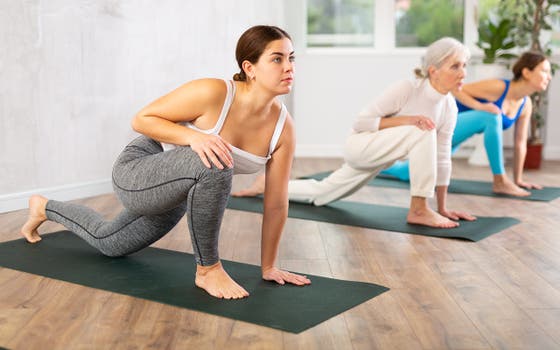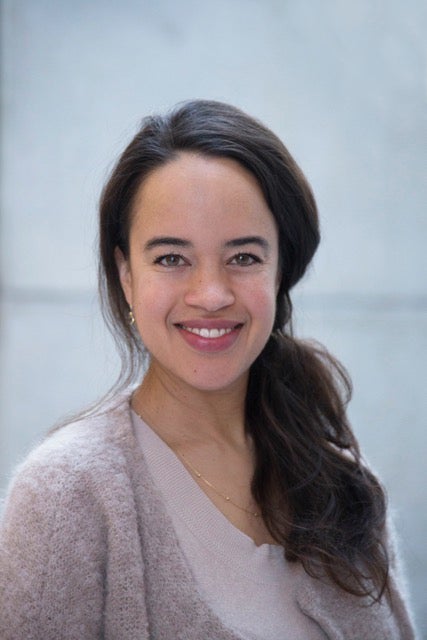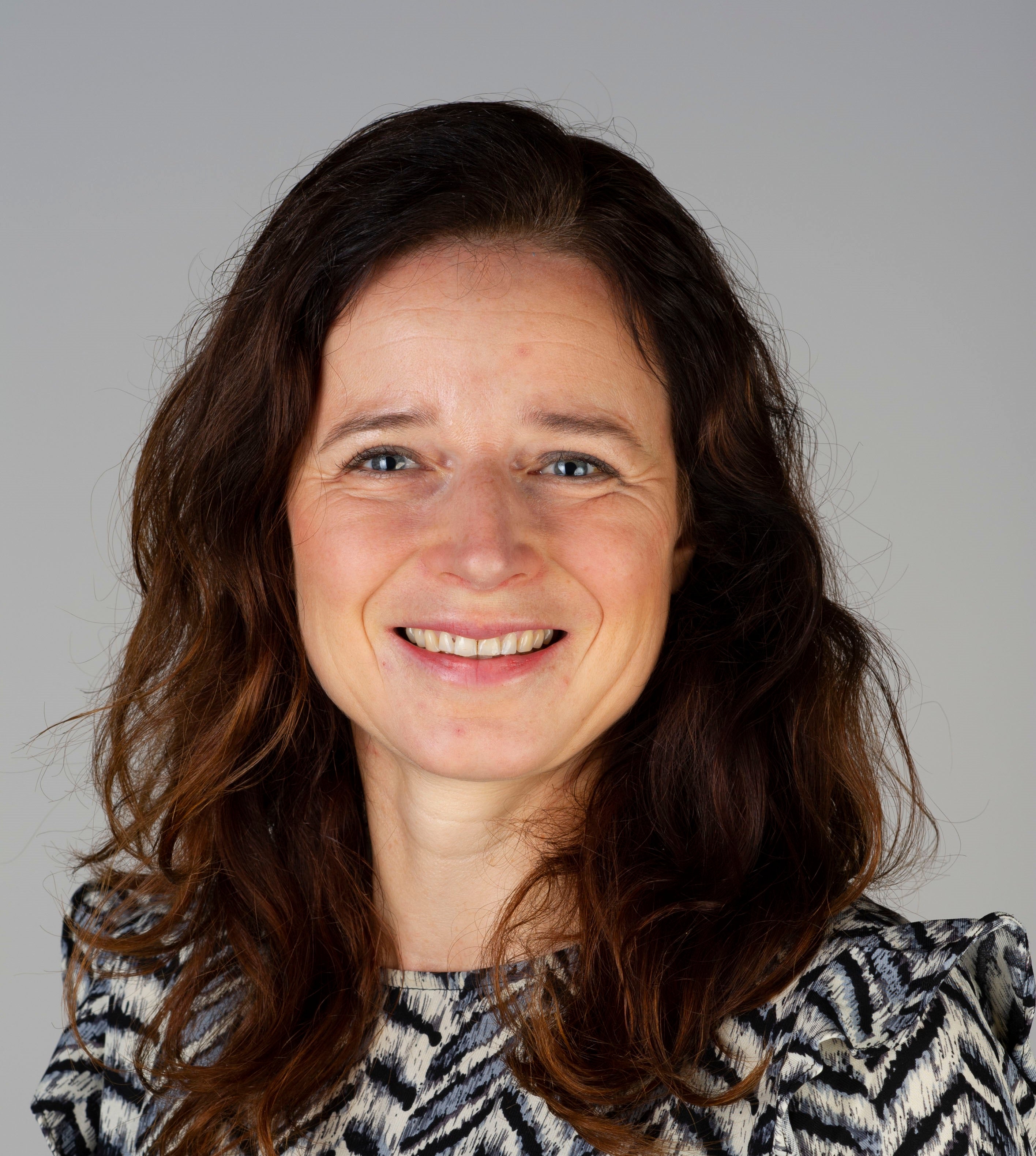Tackling cancer: healthy lifestyle and yoga

The World Cancer Research Fund (Dutch: Wereld Kanker Onderzoek Fonds) finances scientific research on nutrition and lifestyle in relation to cancer. The goal is to provide advice and guidelines for the prevention and improved survival of cancer. UMC Utrecht's two new studies are each granted nearly 400,000 euros. Below, the researchers explain their projects.
Preventing neuroendocrine cancer
Neuroendocrine tumors (NETs) are rare and can occur anywhere in the body. Annually, only about 700 people in the Netherlands develop this disease. Partly because of this small number, NETs are difficult to study, making it difficult to determine what the risk factors are for developing this type of cancer.
The new research will now try to identify which lifestyle factors, such as diet, smoking, alcohol and exercise, influence or prevent the development of NETs. By now, we know that a healthy lifestyle helps to prevent cancer. Countless worldwide studies have already shown that. Smoking, alcohol and stress, among others, increase the risk of cancer. And exercise and certain foods can help to protect us against cancer. But how exactly does that work with the development of NETs in particular?
Rachel van Leeuwaarde is an internist-endocrinologist at UMC Utrecht and is coordinating this research. UMC Utrecht is collaborating with Harvard TH Chan School of Public Health and Imperial College London on this study.
“The role of lifestyle habits has already been studied many times in common types of cancer. But this is the first time we are going to do this on such a large scale for these rare tumors,” says Rachel.
Focus on databases
Rachel and her team will link and analyze nine large databases. One of these is the European EPIC study, of which UMC Utrecht is co-coordinator. In total, the data of as many as 1,465,075 people are included in the nine databases. These people completed questionnaires about their health and lifestyle habits, starting in the 1990s. It was meticulously recorded whether they, for instance, smoke, drink alcohol, exercise, are overweight, et cetera. They also answered questions about their diet.
About 600 people from this sizeable group have since developed NET. By analyzing all the data, the researchers can determine which lifestyle habits specifically contributed to the development of neuroendocrine cancer.
Mediterranean diet is better
UMC Utrecht has previously executed similar data research within Europe, cooperating with colleagues from Imperial College London and other partners from the EPIC study. With Harvard's help, the group of people studied is now expanded to include American data. The researchers also hope to add Asian data in the near future, by collaborating with an Asian institute.
“Within the European data study, our main conclusion was that a Mediterranean diet helps to prevent neuroendocrine cancer,” says Rachel. “This is probably because it contains less saturated fats. People eat more fish, for example, and olive oil instead of butter. Also, more fresh ingredients are used. With this additional study, we now hope to confirm this remarkable result in a larger group of people.”
More answers
This research has already started and will take about 3.5 years. Each year, researchers will evaluate interim results. What does Rachel hope to find?
“My patients ask me all the time: ‘What can I do myself to battle or prevent my rare disease?’ I want to be able to give them a more appropriate answer based on scientific research. I already advise them that they should eat healthy and Mediterranean food. And I tell them they should keep exercising during their treatment, as that could also contribute to improved survival rates. I want to be able to guide my patients more precisely with appropriate lifestyle advice,” Rachel concludes.
Yoga against joint pain
The second study to receive WCRF funding focuses on hormone-sensitive breast cancer. About 85 percent of women with breast cancer suffer from this type of the disease, with female hormones causing and/or accelerating tumor growth. They receive hormone therapy, reducing the production of estrogens and other female hormones. Women should take these hormone inhibitors for a longer period of time (five to 10 years). This will reduce the risk of the disease returning, and will increase chances of survival.
Unfortunately, hormone therapy also has many unpleasant side effects, which are similar to menopausal symptoms. These include muscle and joint problems, osteoporosis, mood swings, hot flashes, insomnia, difficulty concentrating, weight gain and vaginal changes. Because these symptoms can be severe, about 30 percent of women decide to stop taking hormone therapy. Joint complaints often play a major role in this decision.
Stronger muscles
The researchers hope that yoga will help to reduce muscle and joint pain, leading to fewer women discontinuing hormone therapy. UMC Utrecht is collaborating with Amsterdam UMC and Medisch Spectrum Twente for this research, which is coordinated by epidemiologist Evelyn Monninkhof of UMC Utrecht's Julius Center.
“Often, little can be done against muscle and joint complaints. Women are given painkillers or anti-inflammatories, but these also have side effects,” says Evelyn. “Yoga lengthens and strengthens the muscles, putting less strain on the joints. We hope this will reduce pain and stiffness. We also suspect that relaxation plays a crucial role: improved breathing may help, via the brain, to influence the pain cycle.”
Getting active
Evelyn and her team will guide 140 women with hormone-sensitive breast cancer. The participating women all suffer from muscle and joint pain due to hormone therapy. Half of them will follow a special yoga program for four months.
It involves a yoga style called Easy Vinyasa: active stretching exercises combined with attentive breathing. The women will have a 60-minute yoga class twice a week, instructed by an experienced yoga teacher close to home. The women also exercise yoga at home. They do so once a week, for 30 minutes, using videos.
“The women really have to get active, but the exercises are not highly intensive,” Evelyn explains. “That is, women could be in a lot of pain, or they could have trouble raising their arms because the lymph nodes in their armpits have been removed.”
Fewer complaints
The researchers' goal is to reduce muscle and joint pain, but they also hope to ease other symptoms. The women will be examined after four months, and the results will be compared with those of the ‘control group’. This group consists of the 70 participating women who initially did not follow the yoga program. They will be offered the yoga program after four months, so that they can also benefit from it. Classification into the yoga or control group will be done randomly.
The study will start in June 2024. The women will not begin with the yoga program at the same time. Six women will join in each month. It will take about 2.5 years for all the women to complete the program. The final results of the project will be presented in 2027.
“We are very pleased with these two new projects and the funding from WCRF,” says Anne May, professor of clinical epidemiology of cancer survivorship at the Julius Center/UMC Utrecht. “These studies exactly fit within our mission to prevent cancer and improve the quality of life of people with cancer. We think lifestyle plays an important role in fulfilling this mission.”
Join our yoga research?
Women can still take part in Evelyn Monninkhof’s yoga research. Interested? Please contact Evelyn via e.monninkhof@umcutrecht.nl.


